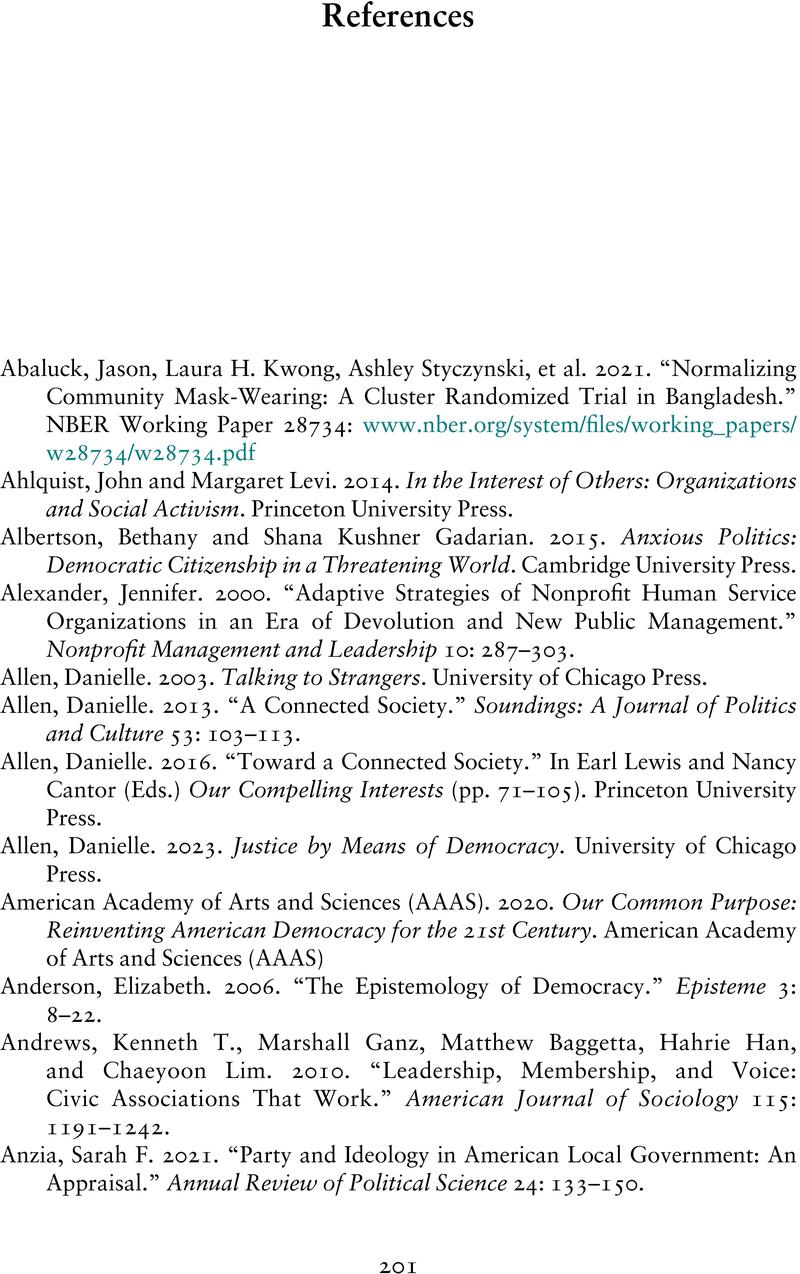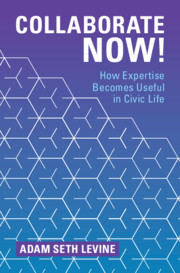Book contents
- Collaborate Now!
- Collaborate Now!
- Copyright page
- Contents
- Figures
- Tables
- Acknowledgments
- 1 Expertise and Collaborative Relationships in Civic Life
- 2 A Theory of Relationality
- 3 Relationality in Practice
- 4 The Link between Relationality and Collaborative Relationships
- 5 Surfacing and Meeting Unmet Desire for New Collaborative Relationships
- 6 Moving Forward
- Book part
- References
- Index
- References
References
Published online by Cambridge University Press: 14 March 2024
- Collaborate Now!
- Collaborate Now!
- Copyright page
- Contents
- Figures
- Tables
- Acknowledgments
- 1 Expertise and Collaborative Relationships in Civic Life
- 2 A Theory of Relationality
- 3 Relationality in Practice
- 4 The Link between Relationality and Collaborative Relationships
- 5 Surfacing and Meeting Unmet Desire for New Collaborative Relationships
- 6 Moving Forward
- Book part
- References
- Index
- References
Summary

- Type
- Chapter
- Information
- Collaborate Now!How Expertise Becomes Useful in Civic Life, pp. 201 - 212Publisher: Cambridge University PressPrint publication year: 2024



